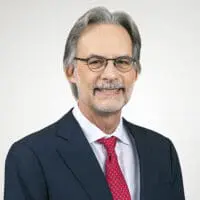Publication
Telehealth Fraud Triggered by COVID-19 Pandemic
By Paul J. Giancola and Claudia E. Stedman
On January 14, 2021, the Department of Justice announced that it had obtained over $2.2 billion in settlements and judgments from fraud and False Claims Act cases over the previous fiscal year.1 More than 80 percent of False Claims Act recoveries in FY 2020 came from resolutions of healthcare fraud and enforcement actions, which marks the largest number of government-initiated cases against healthcare entities ever reported.2
With any emerging technology utilized on the scale that telemedicine has been used as a result of the COVID-19 public health emergency (PHE), opportunities abound for fraud and abuse. The largest healthcare-related recoveries in FY 2020 came from kickbacks to doctors in the pharmaceutical industry, price fixing from drug manufacturers, opioid-related fraud, medical device kickbacks, fraud arising under government contracts, and improper billing of federal healthcare programs.3 Telehealth fraud and abuse will likely persist in the context of improper billing and upcoding for Medicare reimbursement, durable medical equipment and patient health information, and Medicare Part B and home health services.
Upcoding and Billing Issues
As a result of the PHE, state and federal regulators relaxed restrictions to increase access to telemedicine for patients across the United States. For instance, the Centers for Medicare & Medicaid Services (CMS) expanded reimbursement for telehealth services to include a broader variety of healthcare practitioners and suspended limitations regarding where patients could receive telehealth care.4
CMS reported an 11,000 percent increase in virtual appointments over the course of the PHE.5 Likewise, in the first three months of the pandemic, Medicare primary care visits increased by more than 43 percent.6 As more patient-physician interfacing occurs over telehealth platforms, CMS will closely monitor reimbursement requests from providers to monitor potential for up-coding the amount of time spent with patients and the complexity of the services rendered.7 There will also be opportunity for fraud in misrepresenting the virtual services provided. Different CPT codes apply depending on the type of patient-provider interaction and whether that meeting is synchronous or asynchronous.8 In this virtual environment, it is now much easier for a healthcare provider to fraudulently bill for the CPT code that will give him greater reimbursement or bill for a service he never rendered.
Operation Rubber Stamp
On October 7, 2020, the Department of Justice announced the largest healthcare fraud takedown to date, which resulted in more than $6 billion in alleged fraud losses.9 More than two-thirds of the losses from this scheme, dubbed “Operation Rubber Stamp,” were related to telemedicine.10 Ultimately, 345 defendants, including telemedicine executives, “allegedly paid doctors and nurse practitioners to order unnecessary durable medical equipment (DME), genetic and other diagnostic testing, and pain medications, either without any patient interaction or with only a brief telephonic conversation with patients they had never met or seen."11 The suppliers then exchanged the orders for illegal kickbacks or bribes and billed federal healthcare programs.12
Schemes, such as “Operation Rubber Stamp,” show the significance of telehealth fraud and abuse, data-mining and patient privacy concerns. These types of fraud schemes, which are likely to occur more frequently in the future, are also are dangerous to patients who might delay care or otherwise rely on fabricated medical tests or results.
OIG Audits for Medicare Part B and Home Health Services
Last month, the Office of the Inspector General (OIG) added two new audits to its Work Plan: “Audits of Medicare Part B Telehealth Services During the COVID-19 Public Health Emergency” and “Audit of Home Health Services Provided as Telehealth During the COVID-19 Public Health Emergency.13
Because the CMS blanket waivers 14 significantly broadened the type of provider who can bill Medicare for telemedicine services, the Part B audit will examine whether Medicare requirements were met. This audit will be conducted in two phases, with phase one focusing on whether “services, such as evaluation and management, opioid use order, end-stage renal disease, and psychotherapy” met Medicare requirements. The second component of the audit will evaluate “services related to distant and originating site locations, virtual check-in services, electronic visits, remote patient monitoring, use of telehealth technology, and annual wellness visits."15
The home health audit will look at “which types of skilled services were furnished via telehealth and whether those were administered and billed in accordance with Medicare requirements."16 The inclusion of these audits in the OIG Work Plan demonstrates that telehealth will be an ever-important area for review and enforcement.
Conclusion
Telemedicine expands access to healthcare and, in the context of the PHE, has become an invaluable means for providers to interface with patients. However, telehealth is also a tool which is ripe for fraud. Fraudulent billing schemes are expensive to taxpayers and potentially threaten patients’ healthcare needs. Because it appears that telehealth is here to stay, patients and providers will likely lobby for CMS to continue covering certain services and particular provider types even after the COVID-19 pandemic has subsided. The noted benefits that telemedicine offers to both patients and providers makes it likely that CMS will continue to cover telehealth services, albeit not as broadly as it has during the PHE. Going forward, entities, such as the DOJ and OIG are expected to be instrumental in enforcing telehealth fraud actions against bad actors to protect patients and law-abiding providers alike.
Footnotes
-
Off. of Pub. Aff., Press Release, Justice Department Recovers Over $2.2 Billion from False Claims Act Cases in Fiscal Year 2020, U.S. Dep’t of Just. (Jan 14, 2021), https://www.justice.gov/opa/pr/justice-department-recovers-over-22-billion-false-claims-act-cases-fiscal-year-2020.
-
Green, George B., et al., DOJ False Claims Act Statistics 2020: Over 80% of all Recoveries Came from Health Care Industry, 11 The Nat’l L. Rev. (2021), https://www.natlawreview.com/article/doj-false-claims-act-statistics-2020-over-80-all-recoveries-came-health-care.
-
Supra note 1.
-
CMS.gov, President Trump Expands Telehealth Benefits for Medicare Beneficiaries During COVID-19 Outbreak, Ctrs for Medicare & Medicaid Servs. (Mar. 17, 2020), https://www.cms.gov/newsroom/press-releases/president-trump-expands-telehealth-benefits-medicare-beneficiaries-during-covid-19-outbreak.
-
Susan Gaertner and Jackson Hobbs, Just What the DOJ Ordered: Telehealth Enforcement Actions Are Here to Stay, JDSupra (Dec. 2, 2020), https://www.jdsupra.com/legalnews/telehealth-enforcement-actions-48714/.
-
HHS Press Office, Press Release, HHS Issues New Report Highlighting Dramatic Trends in Medicare Beneficiary Telehealth Utilization amid COVID-19, U.S. Dep’t of Health and Human Servs. (Jul. 28, 2020), https://www.hhs.gov/about/news/2020/07/28/hhs-issues-new-report-highlighting-dramatic-trends-in-medicare-beneficiary-telehealth-utilization-amid-covid-19.html.
-
DeLaurentis, Allison, et al., Fraud Emerges as Telemedicine Surges: Compliance Guidance for Telemedicine Providers, JDSupra (Oct. 15, 2020), https://www.jdsupra.com/legalnews/fraud-emerges-as-telemedicine-surges-66366/
-
Id.
-
U.S. Attorney’s Office, S.D. Ga., Press Release, Operation Rubber Stamp: Major health care fraud investigation results in significant new charges, U.S. Dep’t of Just. (Oct. 7, 2020), https://www.justice.gov/usao-sdga/pr/operation-rubber-stamp-major-health-care-fraud-investigation-results-significant-new.
-
Off. of Pub. Aff., Press Release, National Health Care Fraud and Opioid Takedown Results in Charges Against 345 Defendants Responsible for More than $6 Billion in Alleged Fraud Losses, U.S. Dep’t of Just. (Sep. 30, 2020), https://www.justice.gov/opa/pr/national-health-care-fraud-and-opioid-takedown-results-charges-against-345-defendants.
-
Id.
-
Supra note 8.
-
U.S. Dep’t of Health and Human Serv., Off. of Inspector Gen., Active Work Plan Items (2021), https://oig.hhs.gov/reports-and-publications/workplan/updates.asp.
-
CMS, COVID-19 Emergency Declaration Blanket Waivers for Health Care Providers, Ctrs. for Medicare & Medicaid Servs. (Dec. 1, 2020), https://www.cms.gov/files/document/summary-covid-19-emergency-declaration-waivers.pdf.
-
OIG, Audits of Medicare Part B Telehealth Services During the COVID-19 Public Health Emergency (2021), https://oig.hhs.gov/reports-and-publications/workplan/summary/wp-summary-0000556.asp.
-
OIG, Audit of Home Health Services Provided as Telehealth During the COVID-19 Public Health Emergency (2021), https://oig.hhs.gov/reports-and-publications/workplan/summary/wp-summary-0000553.asp.
About Snell & Wilmer
Founded in 1938, Snell & Wilmer is a full-service business law firm with more than 500 attorneys practicing in 17 locations throughout the United States and in Mexico, including Los Angeles, Orange County, Palo Alto and San Diego, California; Phoenix and Tucson, Arizona; Denver, Colorado; Washington, D.C.; Boise, Idaho; Las Vegas and Reno, Nevada; Albuquerque, New Mexico; Portland, Oregon; Dallas, Texas; Salt Lake City, Utah; Seattle, Washington; and Los Cabos, Mexico. The firm represents clients ranging from large, publicly traded corporations to small businesses, individuals and entrepreneurs. For more information, visit swlaw.com.


